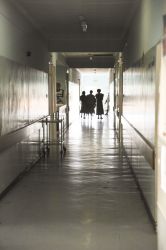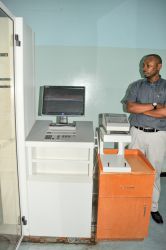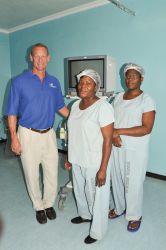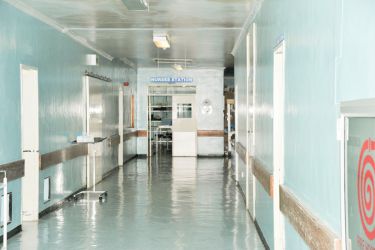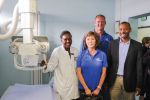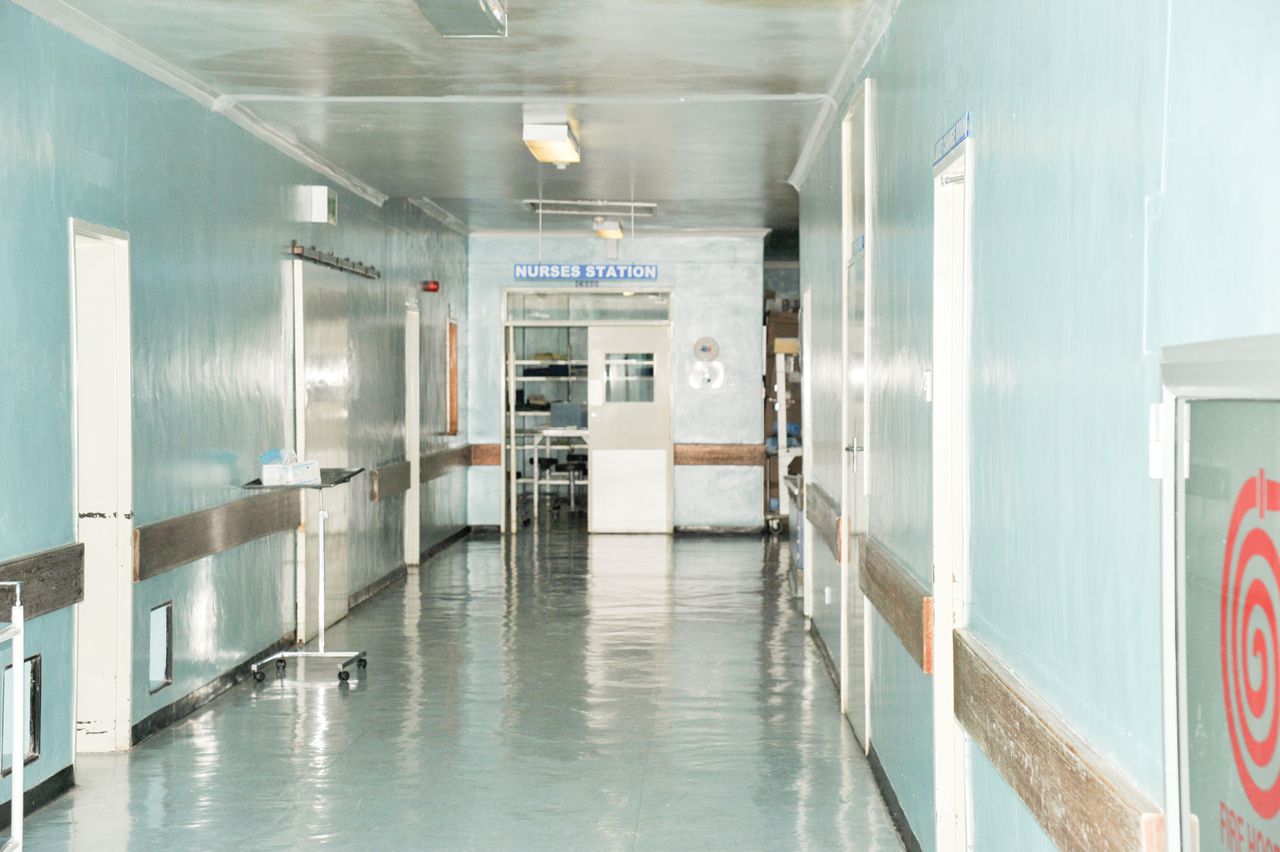The ongoing partnership between Medical Mission International and South Medical has facilitated the transformation of a previously defunct hospital into a success story. South Medical is now estimated to be one of the largest hospitals in Zimbabwe, and thanks to MMI funding, supplies and equipment, one of the best-equipped hospitals in the country. The hospital, located in Chitungwiza, a city of about one million people is about 30 km out of the capital city of Harare.
“We are profoundly grateful to MMI,” said Dr. Mathew Wazara, medical advisor to MMI in Zimbabwe. “It is such a unique partnership. The hospital has had very specific requirements and it has been such a blessing to be able to make requests and the hospital and the community has been able to receive what it needs.”
Medical Mission International has provided funding for specialized equipment, including a new mammogram machine, X-ray machine and an ultra-sound scanning suite for the new radiology department, as well as two ambulances for the hospital. MMI has also dispatched multiple ocean cargo containers to assist with on-going hospital operations. The shipments contain medical supplies and equipment, including things like medical gloves, gowns, surgery packs, lab coats, needles, exam tables and lights, wheel chairs, crutches, walkers, hospital beds and mattresses, various scopes and other operating room, laboratory and hospital supplies. Many of the medical supplies are shared with other hospitals and clinics in Zimbabwe in an effort to assist underfunded facilities to remain operational by providing them with desperately needed items like antibiotics, syringes, sanitation items and medical disposables.
According to Dr. Wazara, prior to the partnership, the South Medical hospital was run down and barely operational. The ceilings were falling in and the building was in total disrepair. Most of the hospital wings were closed and the property surrounding the hospital was overgrown.
Private funding was secured to take control of the hospital and its operations. Medical Mission International began providing the needed equipment and supplies to restore the facility. In addition to a fully functioning operating room and emergency room, the hospital has also opened a new radiology department, as well as its own laboratory. The new in-hospital laboratory can test for things like HIV, blood sugar, cholesterol, and liver function.
“Getting the equipment and being able to set up the laboratory has been a huge deal for South Medical Hospital,” said Dr. Wazara. “Previously, the hospital had to outsource all tests and send specimens to a third party.”
According to Dr. Wazara, equipment like the mammogram machine and the scopes to perform things like colonoscopies are game changers. “ It is very exciting to be able to offer these services to the community. Previously, if a woman had a lump in her breast, she would not have any option other than waiting for it to burst, or possibly dying from breast cancer.”
The goal of the partnership has been to create an alternative, credible delivery of health care. Patients with economic ability pay for services. This combined with other sustainable programmes, such as the MMI sponsored agriculture project, create revenue stream. In turn, this allows the poorest in the community to receive medical care at little or no cost.
“Humanitarian aid creates possibilities where there were none,” said Dr. Wazara. “Everyone here knows that when MMI is involved, help is on the way.”
The people of Zimbabwe have endured an economic meltdown that turned one of Africa’s most prosperous countries into a place with one of the lowest life expectancies in the world. Today, Zimbabwe suffers both endemic poverty and unemployment. Not only did the infrastructure and economy collapse, the health sector was also decimated.
Dr. Wazara, who was born in the country of Zimbabwe (previously known as Rhodesia) remembers when Zimbabwe suffered a mass exodus of skills. He recalls when upward of 2,000 nurses per week were leaving and estimates about 90% of all doctors left the country. Hospitals and clinics shut their doors. No imports were coming into the country. No goods. No services. Hospitals were not even able to equip themselves with simple things like sutures for stitching up wounds.
“The burden of disease and need is overwhelming here in Zimbabwe,” said Dr. Wazara. “We will work non-stop for the next few years and barely make a dent in the children’s surgeries that are necessary, or treat all the adults with life-threatening illness.”
Zimbabwe has been listed as the one of the poorest countries in the world by Daily Finance. The World Bank has estimated that more than seven in ten Zimbabwe citizens live beneath the poverty line. Most people are unable to afford the fees charged by government hospitals for services. Even the most basic medical care is out of reach for most people in Zimbabwe. The unemployment rate has been estimated to be as high as 95 percent, with no real solutions on the horizon to the country’s troubles.
The government has struggled to pay the salaries of its civil servants, many of them doctors, nurses, pharmacists and hospital staff. This severely impacts the public health sector and results in hospitals and clinics without staff, and a government with no budget to fund the most basic equipment and maintenance of health facilities. “Without the external help of organisations like MMI, we would have no reason to keep hospitals open,” said Dr. Wazara.
The partnership between South Medical and MMI is helping to serve the sheer amount of people in Chitungwiza who struggle each day with the lack of access to services. Because of MMI and its faithful donors, South Medical is creating health care options for the poor. South Medical is serving patients who previously went without care because of their poverty and inability to afford services in a medical system besieged with a massive overload of need.
“I wish to express our sincere appreciation to the donors and partners of MMI. I send a blessing back to them. I pray that they will be so blessed that the river will never run dry,” said Dr. Wazara.
